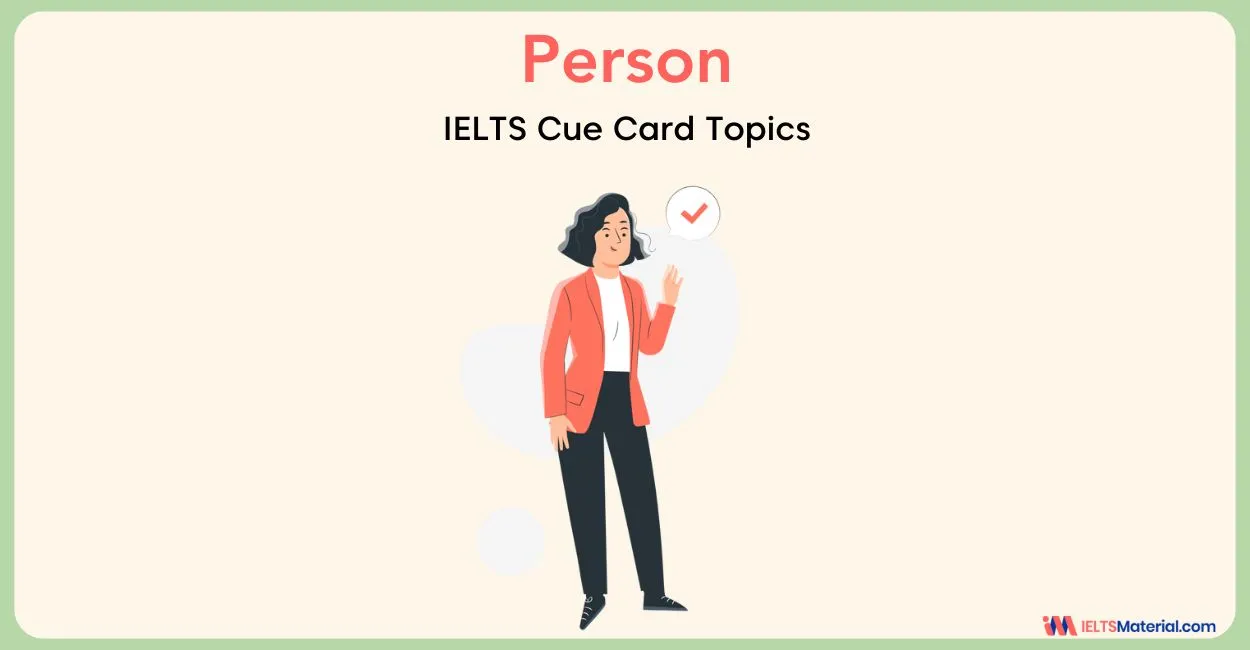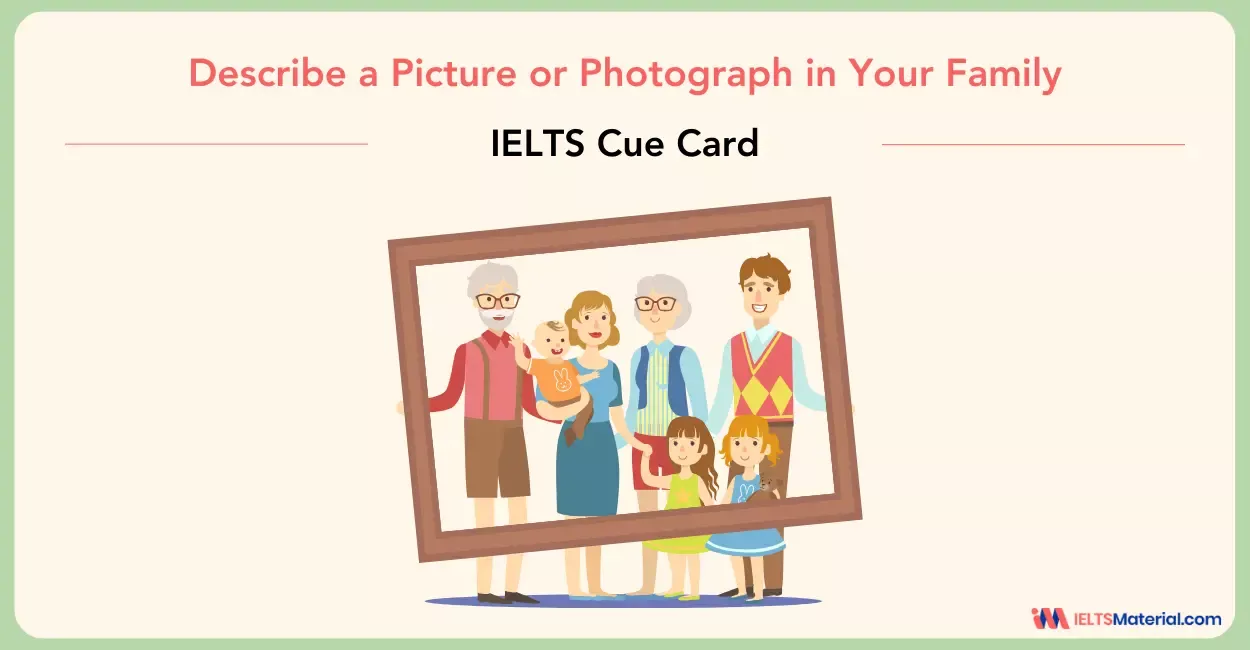Describe Something you Want to do if You get Free Time- IELTS Cue Card
7 min read
Updated On
-
Copy link
Table of Contents

Limited-Time Offer : Access a FREE 10-Day IELTS Study Plan!
Describe something you want to do if you get free time/ Describe what you usually do in your leisure time
You should say:
- what you do (future tense)
- who you do it with (future tense)
- where you do it ( future tense)
And explain why you like to spend your free time this way
Sample Answer 1
In the intensely competitive and demanding world of today, it is becoming difficult to find a few leisurely moments. When people do end up with free time on their hands, they want to ensure they spend it judiciously. I would agree with that sentiment and in this regard, I would like to talk about what I want to do if I get free time.
Reading is one recreational activity I usually want to do when I have time to spare. I like escaping into the world of the books that I read and letting myself soak up the magical beauty of the written word. I will read pretty much anything I can get my hands on, from works of non-fiction to novels to poetry and plays. Books enrich me with knowledge while also letting me step into the shoes of myriad characters, which have imbued me with compassion and empathy. I also like that reading allows me to get a glimpse of different cultures and their traditions and explore places across the universe from the comfort of my home.
Reading is a solitary activity, by and large, which is perfect for an introvert like me. However, I also like discussing books and exchanging thoughts about them with others. As a result, I often end up recommending or gifting books to my friends. I am also part of a book club which allows me to feel a sense of community with other readers and share the highs and lows of reading with them. This leisure activity has been a great comfort for me and I look forward to being able to participate in it whenever I seem to have a relatively free schedule.
Sample Answer 2
Finding leisure time in today’s highly competitive and modern society is extremely hard; yet, if one does have leisure time, they should make the most of it in a constructive manner.
I’m swamped with work commitments daily as a social media manager, and as a result, I don’t have spare time to do leisure activities. However, If I had spare time in my daily life, I definitely wouldn’t want to miss it. I’d engage in activities that are both entertaining and productive. I’ve always been interested in serving humanity and selflessly helping others, so I’d do volunteering as a leisure activity, which is also a rewarding endeavor with numerous benefits. I would gather my friends (only if they are interested in volunteering; otherwise, I’d go alone).
There’s a senior centre/ nursing home located on the outskirts of the city, where the interested individuals are required to register to become a volunteer in their community. I would spend valuable time volunteering at this senior centre by aiding the elderly in improving their mental and physical health, building stronger connections with them to understand their emotions better, keeping them engaged, and becoming their companion.
To be honest, I’d prefer to spend my free time volunteering because it will allow me to establish new bonds and relationships and have an impact on the lives of senior citizens. In addition, it will improve my social skills, enhance self-esteem and build self-confidence.
Vocabulary
- Productive
Meaning: yielding results, benefits, or profits
Eg: The offline sessions were highly productive.
- Outskirts
Meaning: the outer parts of a town or city
Eg: The car showroom is located on the outskirts of the town.
- Serve
Meaning: perform duties or services for (another person or an organization)
Eg: Kim serves the visitors at the gallery.
- Selfless
Meaning: concerned more with the needs and wishes of others than with one’s own; unselfish
Eg: Jack’s selfless act was praised by everyone in the crowd.
- Self-esteem
Meaning: confidence in one’s own worth or abilities; self-respect
Eg: Obese children lack self-esteem
Part 3 Follow-up Questions
1. What are some constructive leisure time activities?
In today’s materialistic world, everyone is so preoccupied with their daily lives that they do not have leisure time on their hands. However, there are some other people who make each and every moment count by doing something productive that interests them, such as blogging/ journaling/ writing, shopping online, baking/cooking, sewing, networking, painting, photography, singing, dancing, etc.
2. How leisure time activities have changed in the last 10 years?
Over the last few decades, leisure time activities have altered dramatically as a result of technological advancements. People used to spend their leisure time doing things like embroidery, knitting and crocheting, gardening, pottery, woodworking, playing cards, reading, hanging together with family, fishing, and so on in the early twentieth century.. However, with the accessibility of smartphones, people increasingly spend their leisure hours scrolling social media applications or blogging about their favorite pastimes, online gaming, online shopping, vegging out, baking, volunteering, and calligraphy.
3. What type of activity would you suggest to your kids?
Well, I’d teach my children the value of leisure time and encourage them to engage in productive activities such as volunteering, writing a blog, learning new courses or languages, cooking/baking, yoga/meditation/exercise, and playing outdoor/indoor games, all of which would not only improve their skills but also their mental and physical health. Therefore, I’d want them to spend their time doing something more fulfilling than simply browsing through their smartphones or flipping channels on the TV.
4. What types of leisure activities are popular in your country?
People of all ages in my country consider getting a free time as a boon, so they involve themselves in many useful leisure activities like hiking, travelling, writing blogs, reading books, watching documentaries, drawing, sewing, painting, jewelry-making, gymnastics, yoga, meditation, exercise, playing indoor/ outdoor games, walking/ running/ jogging, horseback riding, singing, dancing, gardening, and photography.
5. Why is it important for people to have time for leisure activities?
It is vital for people to spend quality time doing recreational activities in order to decrease stress and refresh their minds. Individuals might use leisure activities to respite the monotony of their daily lives. It enhances their personal and social development while also making them feel at ease. Overall, leisure activities are irrefutably invaluable as they offer a chance to find the right balance in life by providing solace, peace, joy and happiness to the mind as well as body.
6. Why are some leisure activities more popular than others?
Some leisure activities are more popular than others due to their ease of access, comfort for people of all ages, and, most significantly, people’s interest and preference for those activities. For instance, my mother spends her leisure time baking cakes. As a result, I too got influenced and developed an interest in baking cakes.
7. Are the types of leisure activities that are popular today the same as those that were popular when your parents were young?
I don’t think there are any similarities in leisure activities between what my parents did in the past and what I do now. In terms of leisure activities, there has been a substantial change between the past and the present as a result of technological breakthroughs. My parents used to spend their free time doing things like gardening, pottery, tree planting, horseback riding, fishing, bird watching, reading comic books, and so on. However, now, while I enjoy doing leisure activities like hiking, writing blogs, baking, mediation, and golfing, my parents spend their leisure hours by scrolling through social media, shopping online, playing online games with their friends and family members.
8. What types of leisure activities may become more popular in the future?
Hmmm… I think the changes have already begun because many leisure activities like fishing, birdwatching, sewing, knitting, and collecting stamps have become outdated, while recreational activities like surfing the internet, reading books, writing blogs, freelancing, networking, calligraphy, playing online games, have become very popular amongst the people of all ages. However, the leisure activities that will remain the same in the future and will continue to surpass other activities in the race will be hiking, traveling, horse riding, playing indoor/outdoor games, socializing with friends, and day out with family, watching movies, video games, baking, and cooking.
9. What type of leisure activities are helpful for children? Why?
Leisure time activities, like traditional education, are important for children’s overall development because all work and no play will bore them. They can engage themselves in some of the useful leisure activities like reading, playing outdoor/ indoor games,gardening, photography, volunteering, reading books, cooking, baking, hiking, and camping with friends. These activities stimulate physical and cognitive processes, resulting in improved physical and mental health as well as increased self-esteem and confidence in children.
10. Some people do not have any leisure activity. Why is this the case?
Yes, some people do not engage in any leisure activities because they want to devote their full attention and dedication to their profession. These people are money-oriented and consider leisure activities as a waste of their precious time. They believe that making money is better than making memories to make ends meet in today’s fast-paced world. They are oblivious to the fact that spending time on recreational activities is worth millions of dollars. However, these people regret missing out on all the enjoyment of their youth in their old age.
Vocabulary
- Materialistic
Meaning: excessively concerned with material possessions; money-oriented
Eg: Michael is a materialistic person who’s not concerned about his family.
- Calligraphy
Meaning: Calligraphy is a visual art related to writing
Eg: John was passionate about calligraphy.
- Boon
Meaning: a thing that is helpful or beneficial
Eg: Scholarship will be a boon to EWS children.
- Socialize
Meaning: to fit or train for a social environment
Eg: The CEO hates to socialize with his colleagues.
- Volunteering
Meaning: work for an organization without being paid
Eg: Jill took up volunteering as a part-time job.
Related Cue Cards

Start Preparing for IELTS: Get Your 10-Day Study Plan Today!
Recent Articles

Haniya Yashfeen

Kasturika Samanta

Nehasri Ravishenbagam





Post your Comments